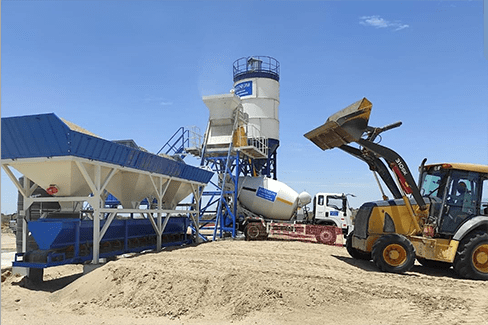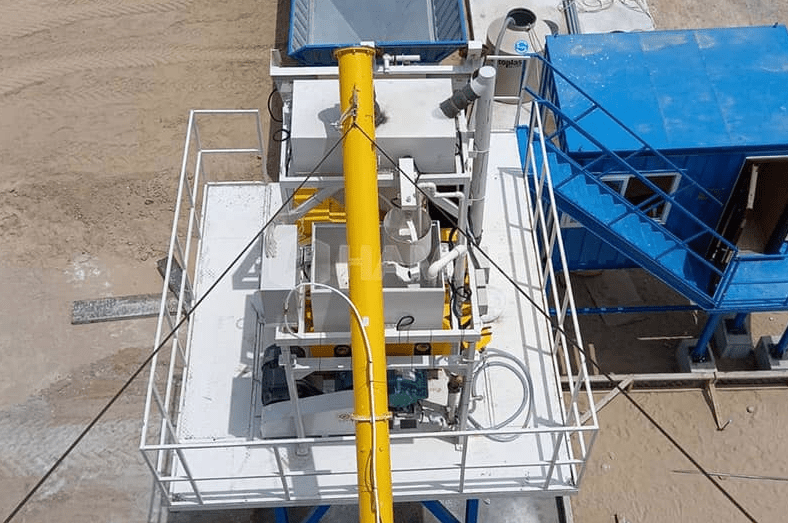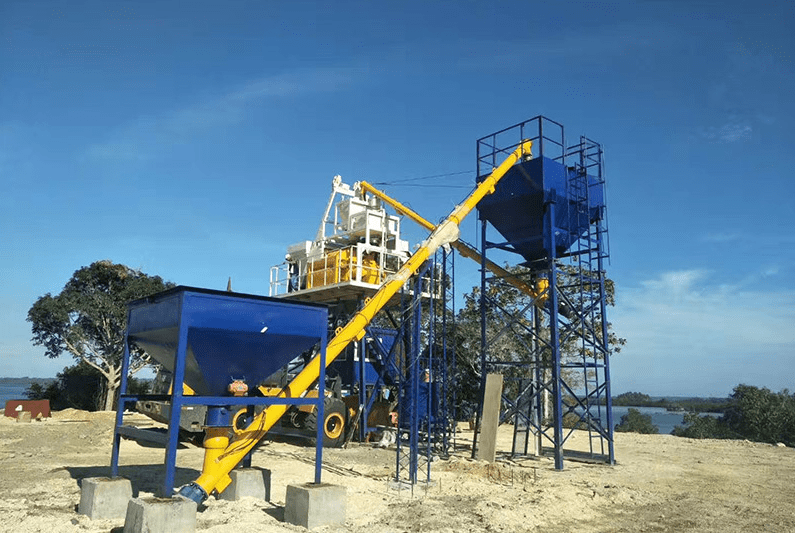Different Concrete Batching Plant Models for Efficient Construction in the Philippines
In the Philippines, the demand for concrete batching plants has been on the rise, driven by several factors. The construction industry in the country is experiencing an outpouring in activity, leading to an increased need for efficient and reliable concrete production. Concrete batching plants play a pivotal role in meeting this demand by facilitating the production of high-quality concrete mixes.
- Preference for High Capacity and Technologically Advanced Plants
- Increasing Number of Construction Projects and Customized Solutions
- Government Initiatives in Infrastructure Development
- Growing Demand for Automation
One of the key factors driving the demand for concrete batching plants in the Philippines is the preference for high-capacity and technologically advanced models. Contractors and construction companies increasingly opt for batching plants with larger production capacities and advanced features. These plants enhance productivity and efficiency by enabling the production of larger volumes of concrete within shorter timeframes. Advanced features such as automated control systems and precise weighing mechanisms improve performance and quality control.

The rise in construction projects and the demand for customised solutions also contribute to the increased demand for concrete batching plants. With the growing number of construction projects in the Philippines, there is a need for batching plants that can cater to diverse requirements and deliver custom solutions. Each project may have unique specifications and demands, necessitating specialized concrete mixes or precise admixture dosing. Batching plants that can accommodate these specific needs are highly sought after in the industry. Contractors in the Philippines are increasingly opting for batching plants with higher capacities and advanced features in order to increase productivity and efficiency. Due to an increasing need for fast project completion, they require batching plants capable of producing large volumes of concrete within shorter timelines – high-capacity plants are essential as they allow contractors to ensure continuous supplies of concrete production without interruption reducing downtime and improving overall productivity while technologically advanced ones offer features such as automated control systems, computerised batching systems and precise weighing that further boost quality and productivity.

Due to an increase in construction projects in the Philippines, batching plants capable of meeting diverse requirements are in great demand. Projects often have specific specifications or demands related to concrete mixes, precise admixture dosing rates or production rates – batching plants that can meet these specifications with tailored solutions are in high demand as contractors strive to meet project specifications while simultaneously guaranteeing optimal quality and performance.

Infrastructure development efforts in the Philippines have driven demand for concrete equipment such as batching plants. Government commitment to improving roads, bridges, airports and ports has resulted in an exponential increase in construction activities; batching plants play an integral part in producing large quantities of concrete needed for these projects. Government investments into infrastructure creation creates an enabling environment for construction industry growth thereby driving up demand for concrete batching plants.
Automation in concrete batching plants has become an indispensable requirement in the Philippines. Automated systems offer numerous advantages, including accurate mixing, higher production effectiveness and improved overall quality. Automation reduces human error while assuring consistent concrete quality resulting in cost savings and increased efficiency. Demand for automation stems from its precision control over batching process as well as real-time monitoring and data analysis capabilities that enable better process control, faster production cycles and easier compliance with quality standards.

Different Types of Concrete Batching Plant Models:
Concrete batching plants can be divided into several different categories depending on their specific features and capabilities, with common models used in the Philippines including:
Mobile Concrete Batching Plant: These mobile plants feature portable shaft mixers designed for maximum mobility and rapid setup, making them the ideal solution for temporary construction sites or projects requiring equipment for specific portions. Installed quickly and dismantled easily, mobile batching plants offer flexibility while significantly decreasing setup times compared to their stationary counterparts. Remote projects often utilize mobile batching plants as transportation becomes a key element.
Stationary Concrete Batching Plant:
Stationary batching plants are designed for long-term usage and large-scale construction projects, offering high production capacities with features like gathering conveyors, accurate weighing systems and twin shaft mixers for efficient mixing. Stationary batching plants are commonly found in infrastructure projects, commercial construction and ready-mix concrete production – providing stable and reliable sources of concrete that facilitate ongoing building activities.
Transit/Dry Mix Concrete Batching Plant:
Transit or dry mix concrete batching plants involve loading all concrete components onto a truck-mounted mixer that mixes it en route to the job site. This model offers flexibility and convenience as one vehicle handles both transportation and mixing duties; furthermore, dry mix plants are often preferred when working remotely or where water resources are limited, providing on-site mixing that can easily be moved from location to location.
Compact Concrete Batching Plant: Whilst traditional batching plants consist of large units that must be transported and assembled on-site quickly, compact batching plants consist of smaller pre-designed production equipment designed for quick transport and installation on-site. They combine mobile batching plants’ mobility benefits with stationary batching plants’ performance capabilities to ensure efficient concrete production. Compact batching plants are perfect for medium-sized construction projects, urban development initiatives or temporary installations, as they offer mobility and production capacity in one package.
Horizontal Batching Plant: Horizontal concrete batching plants feature an efficient design. Their simple yet rugged structures are optimised for cost-effective transport and quick assembly, making them suitable for projects with tight schedules. Equipped with powerful mixers that produce large volumes of concrete quickly and cost-effectively. Horizontal plants are frequently utilised in large infrastructure projects like highways, bridges and airports where quick production schedules require large volumes.
Inline Concrete Batching Plant: The concrete batching plant utilises advanced PLC technology automation, providing fast weighing, automatic scale tolerance checking, inventory monitoring and detailed report generation to produce a cost-effective and efficient concrete manufacturing process. Commonly found in large construction projects or production facilities for greater production efficiency is inline batching plants which offer precise control of batching processes with real-time monitoring of data streams for real-time batching process control as well as real-time data monitoring of batching data streams and real-time reporting of production efficiencies for concrete production facilities utilising advanced PLC automation and real-time monitoring of data streams to provide increased production efficiency of manufacturing process ensuring cost-effectiveness of production efficiency as compared with traditional concrete production methods.
Containerized Concrete Batching Plant:
Containerized batching plants offer an efficient mix of compact footprint, quick installation and convenient transportation. Without legs and mounting brackets to worry about during design and construction, they make containerized plants ideal for various construction projects like hydropower dams, highways, ports, airports and bridges – not to mention rapid deployment, which enables fast transport between sites quickly as needed – providing cost-effective temporary or mobile concrete production solutions.
Demand for efficient and technologically advanced concrete batching plants in the Philippines has grown due to faster project completion times and higher strength concrete requirements. Manufacturers are investing heavily in research and development for innovative solutions to meet market needs; In contrast, government initiatives promoting infrastructure development could further spur this demand for batching plants. Contractors and construction companies should carefully assess their specific project needs before selecting an ideal batching plant model that can meet them. Factors to consider include production capacity, mobility requirements, automation features and customization options. Choosing a batching plant with convenient parts that fit their project requirements and contribute to its successful completion in the Philippines’ bustling construction sector.





John Doe
Lorem ipsum dolor sit amet consectetur adipiscing elit dolor
